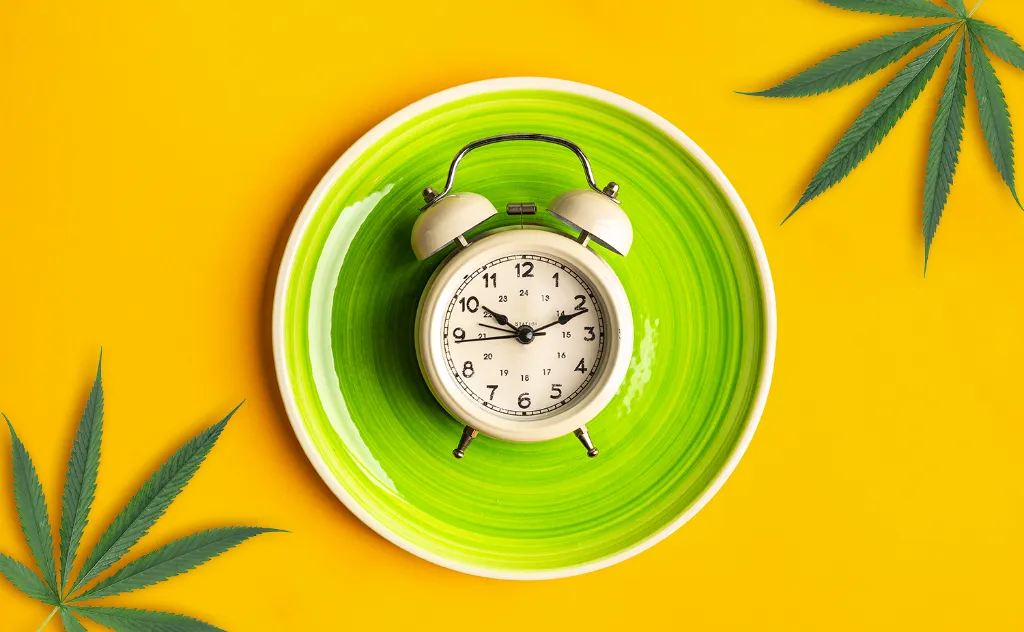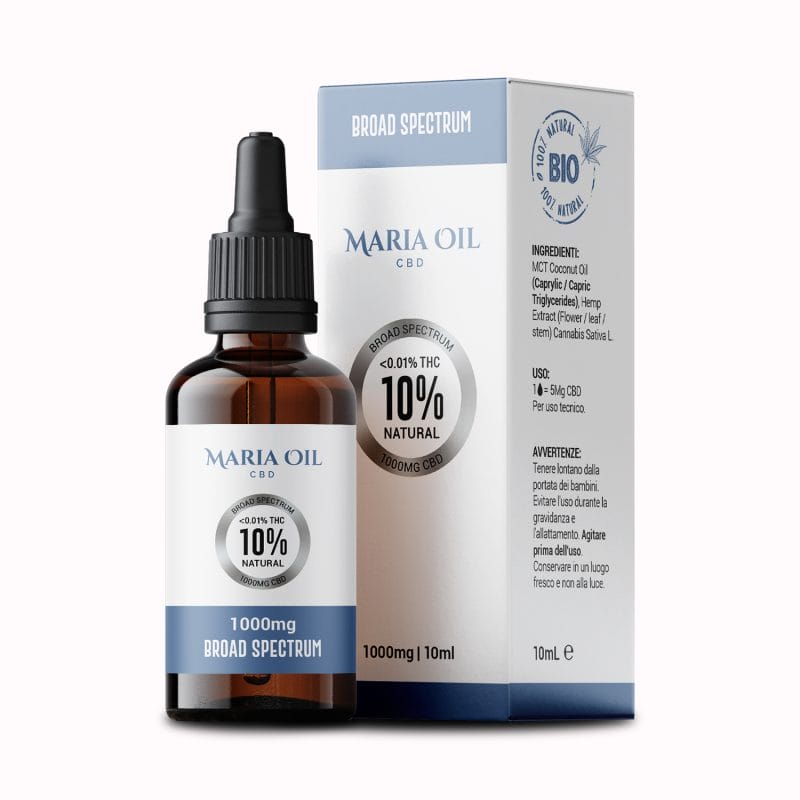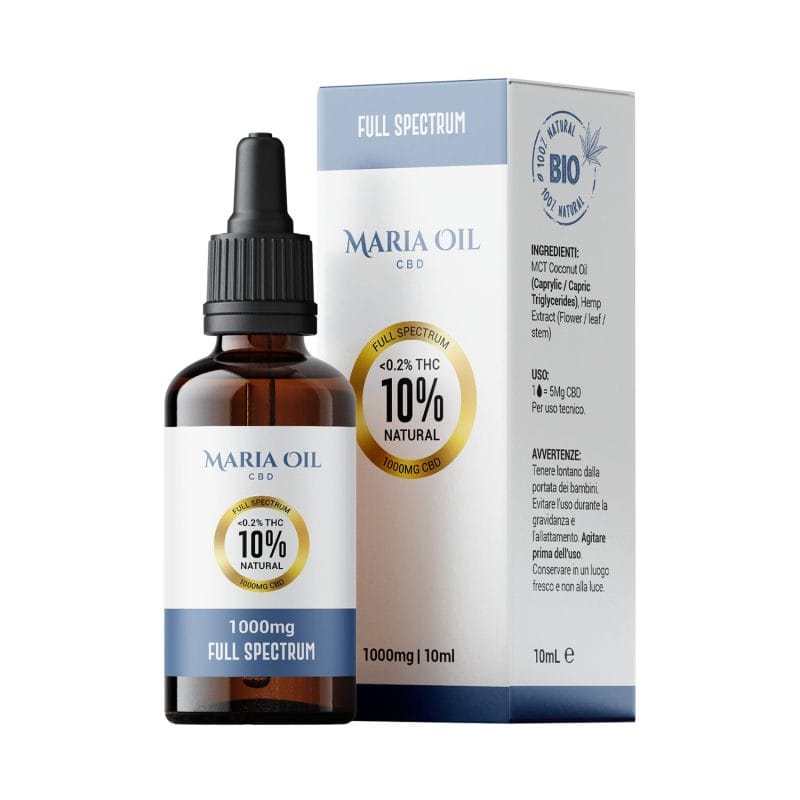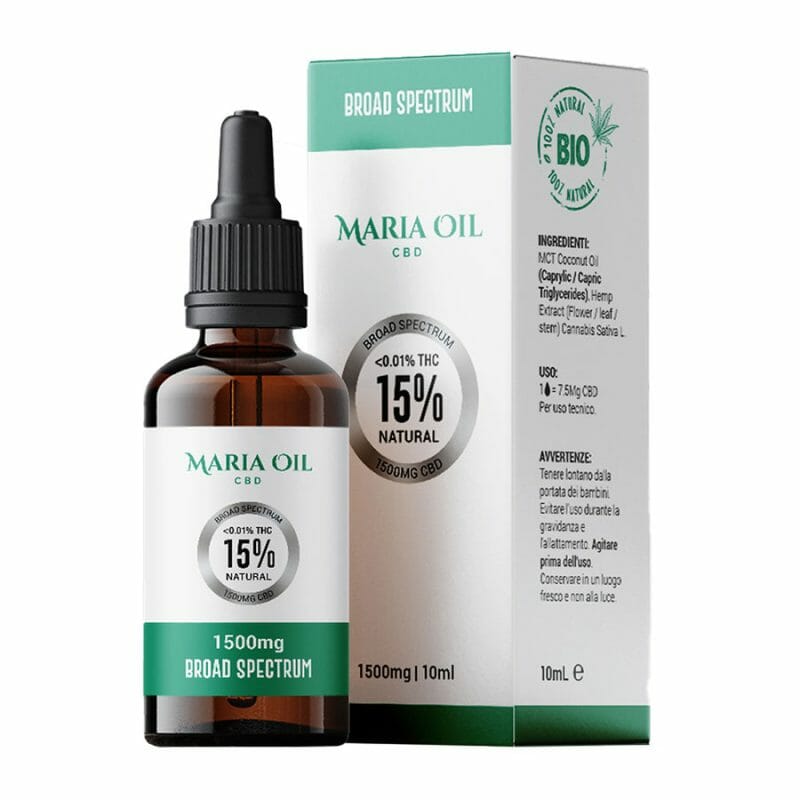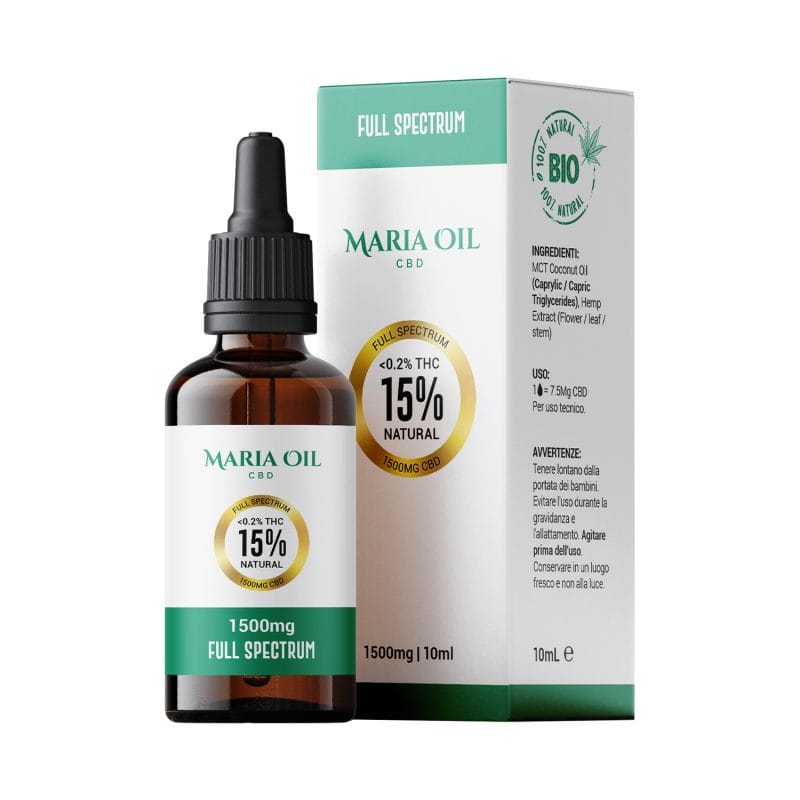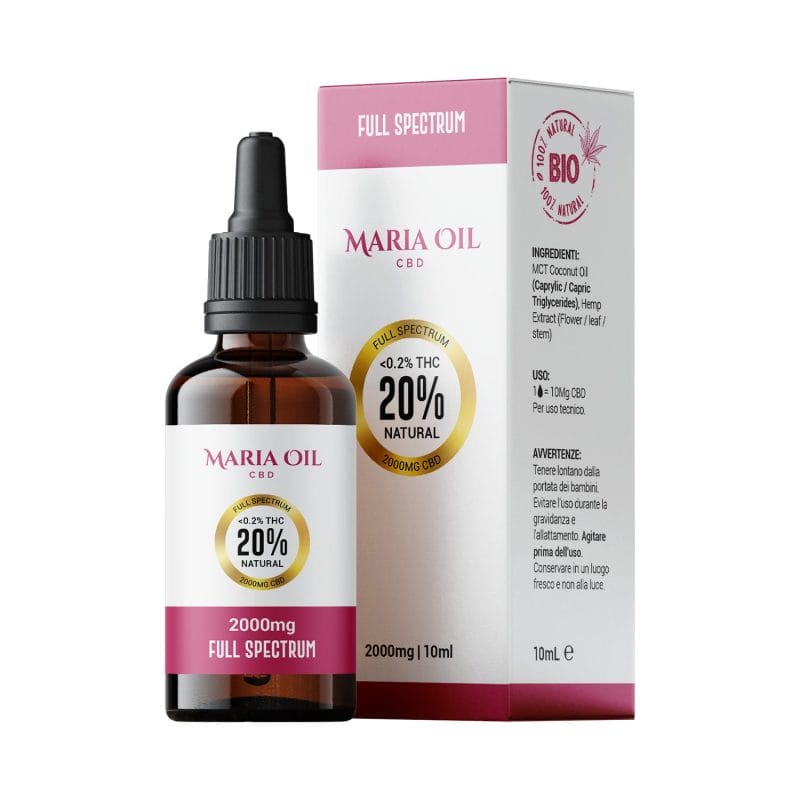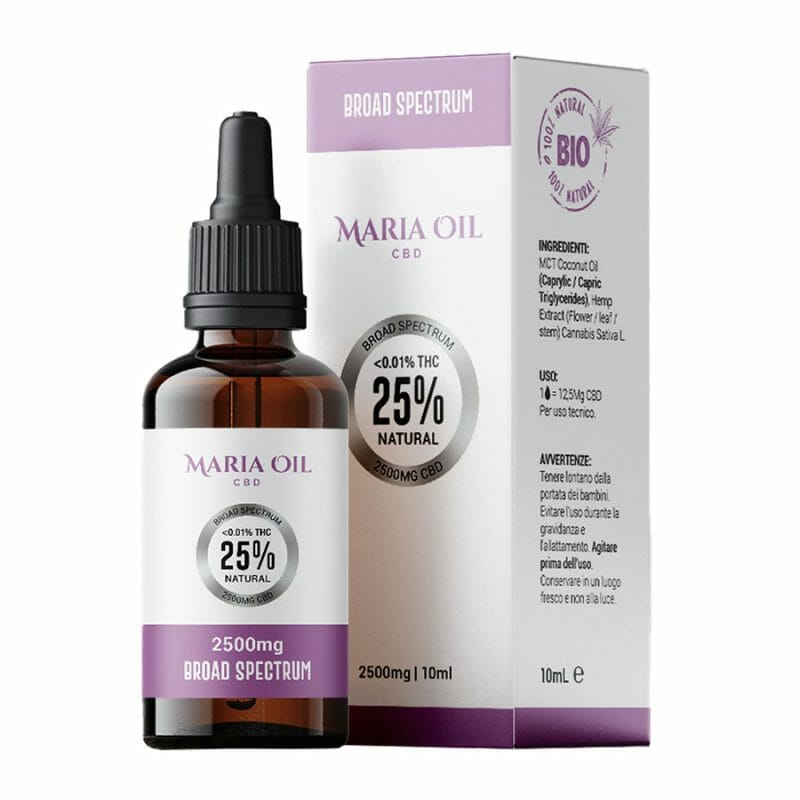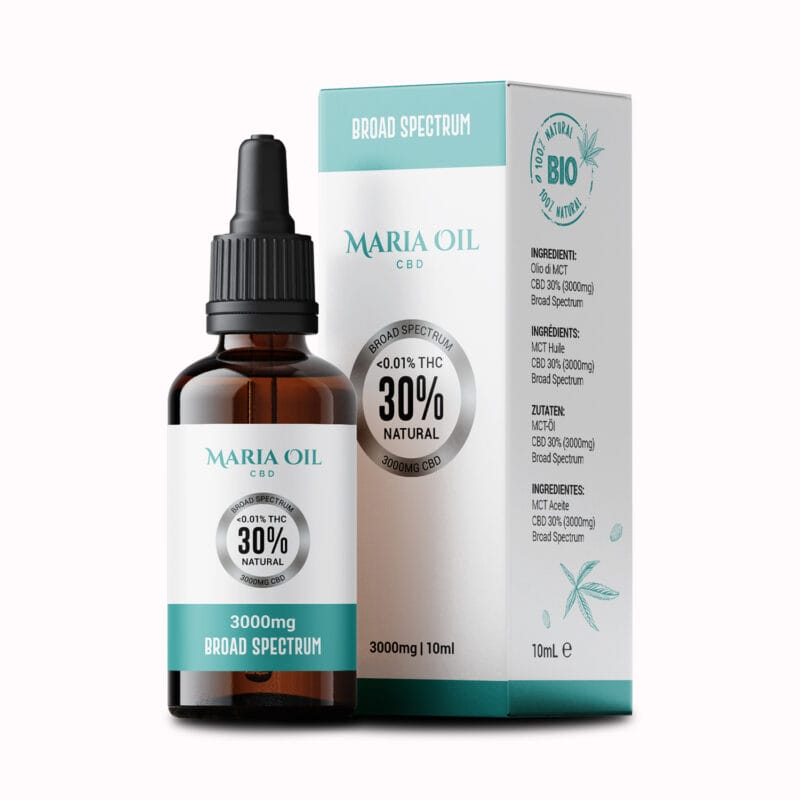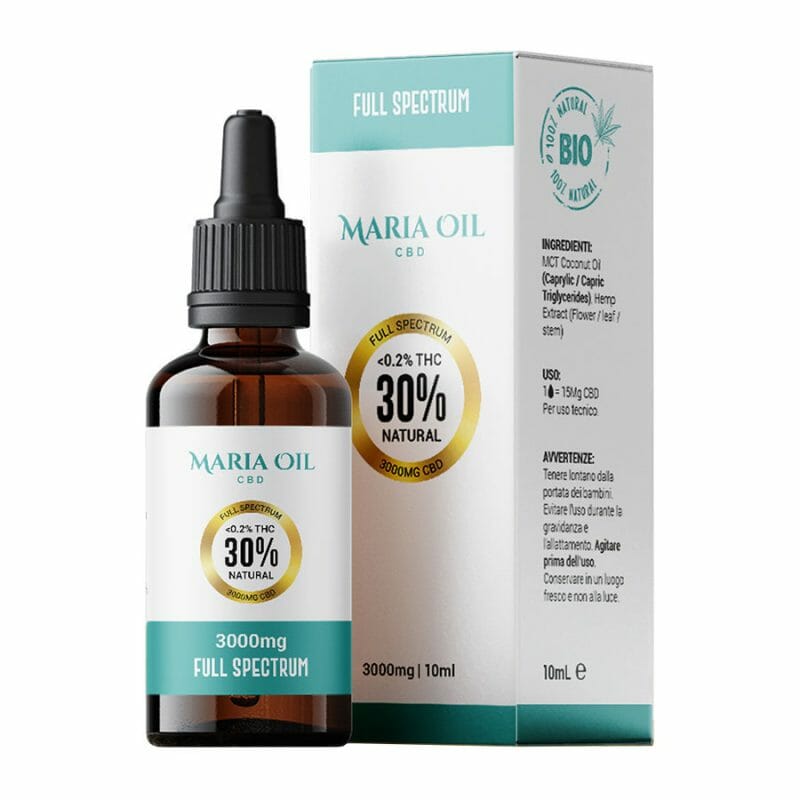In recent years, intermittent fasting has gained increasing acceptance due to its potential health and slimming benefits. During the fasting period, many people try to avoid the intake of foods and drinks that could interrupt the fast and compromise their goals.
In this context, an interesting question arises: can CBD oil break my fast?
CBD oil, or cannabidiol, is a natural extract of the cannabis plant. It is known for its potential benefits such as relief from pain, anxiety and other ailments. However, when it comes to fasting, opinions are mixed. Some argue that CBD oil does not break the fast, while others believe that it can affect metabolism and blood sugar, thus breaking the fasting state.
In this article, we will carefully explore this issue in an attempt to provide a clear answer. We will examine the available scientific evidence, the effects of CBD on the body, and practical considerations. In addition, we will discuss methods of CBD oil intake and calorie intake.
Before making an informed decision, it is crucial to fully understand the effects of CBD oil on fasting. Read on to find out whether CBD oil can break the fast and whether you can include it in your daily routine.
Can I take CBD oil during a diet?
Yes, CBD oil is safe to take while dieting. In fact, there is some evidence to suggest that CBD oil may be helpful in losing weight. For example, one study found that people taking CBD oil lost more weight than those taking a placebo. In addition, CBD oil may help reduce appetite and improve sleep health, both important factors for weight loss.
It is important to note that there is not enough research to state with certainty that CBD oil is effective for weight loss. However, the available evidence suggests that it may be a safe and effective option for people interested in weight loss.
If you are considering taking CBD oil while on a diet, it is important to talk to your doctor or dietician before starting. A specialist can help you determine whether CBD oil is right for you and can help you create a safe and effective dosing plan.
What is intermittent fasting?
Intermittent fasting is a dietary practice that is gaining increasing popularity for its potential health and weight control benefits. This method is based on alternating periods of eating and periods of fasting during the day or week.
Unlike traditional fasting, which can be prolonged or without food, intermittent fasting allows one to have meals during pre-determined ‘windows’ of food, followed by periods of fasting.
There are different types of approaches to intermittent fasting, the best known of which is the 16:8 method that involves 16 hours of fasting and 8 hours of eating. Other methods include 5:2, with two days of significant calorie restriction per week, and the “Eat Stop Eat”, which proposes 24-hour fasts once or twice a week.
The benefits of intermittent fasting include improvements in blood glucose regulation, reduced inflammation, improved cardiac health and potential weight loss. Some studies suggest that this practice may positively influence longevity and reduce the risk of some chronic diseases.
Does CBD oil risk interrupting intermittent fasting?
What happens when you introduce CBD oil in this regime? May hemp oil interrupt the practice?
First of all, CBD itself is non-caloric and should not interrupt fasting. However, carrier oils used to dilute CBD, such as olive or coconut oil, may contain calories. If the goal of fasting is to remain in a state of ketosis or to limit calorie intake, even a small amount of carrier oil could have an impact.
For those following an intermittent fasting for health or spiritual reasons, taking CBD should not be problematic as long as one doesn’t exceed the calorie threshold that would interrupt the fast. Some experts suggest that taking CBD may even support the fast, helping to manage stress and appetite.
It is important to consider the method of intake of CBD. If you choose hemp oil while fasting, check the calorie content of the carrier oil.
So can CBD oil break the fast? It depends on your tolerance threshold. Some intermittent fasting protocols involve taking a small portion of calories even outside meals, while others do not. We will look at the relationship between CBD oil and calories in a moment.
-
Product on saleCBD Oil 10% (1000mg) Broad SpectrumPrice range: £20.30 through £37.80From 1,26 €/gr
-
Product on saleCBD Oil 10% (1000mg) Full SpectrumPrice range: £20.30 through £37.80From 1,26 €/gr
-
Product on saleCBD oil 15% (1500mg) Broad SpectrumPrice range: £27.30 through £44.80From 1,49 €/gr
-
Product on saleCBD Oil 15% (1500mg) Full SpectrumPrice range: £27.30 through £44.80From 1,49 €/gr
-
Product on saleCBD Oil 20% (2000mg) Full SpectrumPrice range: £34.30 through £51.80From 1,73 €/gr
-
Product on saleCBD oil 25% (2500mg) Broad SpectrumPrice range: £41.30 through £58.80From 1,96 €/gr
-
Product on saleCBD Oil 25% (2500mg) Full SpectrumPrice range: £41.30 through £58.80From 1,96 €/gr
-
Product on saleCBD Oil 30% (3000 mg) Broad SpectrumPrice range: £48.30 through £65.80From 2,19 €/gr
-
Product on saleCBD Oil 30% (3000mg) Full SpectrumPrice range: £48.30 through £65.80
Does CBD promote intermittent fasting?
Studies in this field are still at an early stage to give a definitive answer. Some research suggests that CBD may have beneficial effects on metabolism and weight loss, which may be useful for those following intermittent fasting.
For instance, a 2019 study found that CBD increased metabolic rate and lipolysis (the process of breaking down fat) in mice. Furthermore, a 2020 study found that CBD reduced appetite and improved insulin sensitivity in mice.
These results suggest that CBD could be useful for people who are trying to improve their metabolic health.
In addition, as we said at the beginning, CBD oil during a diet can also help by reducing stress, anxiety and insomnia, all factors that often lead to overeating or disordered eating.
CBD and Ramadan
Ramadan is a holy period for Muslims around the world, including a month of fasting, prayer and reflection. During Ramadan, the faithful abstain from eating and drinking from sunrise to sunset, with the intention of purifying the spirit and drawing close to God.
How does the use of products such as hemp oil fit into this context?
During Ramadan, the use of any substance that could be considered nutritious or consciousness-altering is generally prohibited during fasting hours. Even though CBD oil is not psychoactive and does not provide nourishment, its intake may be seen as a violation of the fasting spirit, which is one of total abstinence.
Also, remember again that many CBD preparations are suspended in carrier oils that may contain calories, so they could technically interrupt the fast. For this very reason, if someone wants to use CBD oil during Ramadan, it would be prudent to do so during the evening hours, after Iftar, the evening meal with which the daily fast is broken. In this case, not only would it be permissible, but it could aid relaxation and digestion.
How many calories does CBD have?
CBD is a substance found in the cannabis plant, but it contains no calories. Calories are a unit of energy found in food and drink and are mainly provided by macronutrients such as carbohydrates, proteins and fats.
CBD is a non-nutritive cannabinoid and does not provide energy to the body, so it has no calorie content. This means that CBD intake does not contribute to the overall calorie intake of your diet.
CBD intake options
You can take CBD oil before or after meals in several ways, including:
- Oral: this is the most common way of taking CBD oil, with food or on an empty stomach;
- Sublingual: a few drops of CBD oil are applied under the tongue and left in the mouth for 60 seconds before swallowing; this method of intake allows CBD to be absorbed more quickly into the bloodstream;
- Inhalation: vapourisation allows CBD to be rapidly absorbed into the bloodstream, but may have side effects such as coughing and dry mouth.
How many drops of CBD oil to take? The answer varies depending on the person and the condition being treated. It is advisable to start with a low dose and gradually increase as you need it. To get a clearer idea of how to start, we recommend using our CBD calculator.
We also leave you with tips on how to take CBD oil safely and effectively:
- Start with the minimum amount and increase as needed;
- Talk to your doctor before taking CBD oil, especially if you have any medical conditions or are already taking other medications;
- Watch out for side effects such as drowsiness, dry mouth and nausea;
- If you have side effects, stop taking CBD oil and talk to your doctor.
If you are considering taking CBD oil, it is important to inform yourself and do your research until you find the right product.
Can CBD be used as a supplement?
Yes, CBD can be used as a supplement. It interacts with the endocannabinoid system (SEC) in our body: the SEC is involved in regulating a wide range of physiological functions including the immune system, sleep, appetite, mood and stress response. Taking CBD can help balance the functioning of the SEC, thereby promoting the body’s general wellbeing.
Be careful, however, because CBD is not a substitute for food and proper nutrition. Rather, it can be a useful addition to the diet. CBD has demonstrated anti-inflammatory, analgesic, anxiolytic and antioxidant properties.
It is important to note that CBD is not a drug and, unlike medical cannabis, is not approved for the treatment of any medical condition. However, there is much anecdotal evidence to suggest that CBD may be useful for a variety of conditions.
CBD oil and other products
In conclusion, our investigation carefully examined the effect of CBD oil on intermittent fasting. Based on the evidence and results collected, we can state that there is no concrete evidence that CBD oil can interrupt or compromise the benefits of intermittent fasting.
While CBD may have many benefits for general health and well-being, it does not appear to interfere with a possible diet. However, it is important to emphasise that the use of dietary supplements, including CBD oil, should always be carefully evaluated and supervised by a qualified medical professional.
If you are interested in purchasing high-quality CBD oil products, we invite you to take a look at our online shop. With an unwavering commitment to quality, transparency and efficacy, Maria CBD Oil stands out on the market as a reliable and trusted brand.
Remember to consult a doctor before making any significant changes to your diet or starting to use food supplements. Always choose reliable, high-quality products to ensure maximum benefit for your health.
Discover Maria CBD Oil’s products today and take control of your well-being in a safe and conscious way.
 Contact us
Contact us 

